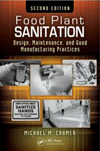Cordray's Corner: A few good men
Pathogens, new testing technologies and the government’s rules for controlling them are changing at an unprecedented pace - one which has not seen before in the history of food processing. More than ever, it is essential that industry and government continue to bridge the gap by working together when formulating new legislation that will work to serve the best interests of all. Government can help by inviting input from industry experts and the industry can help by providing novice inspectors who can advise how specific regulations apply to their business.
When I first started at Cardinal, I remember an old CFIA inspector named Sam. Sam was a veteran of the meat business. Along with smoking in his office, he had this other habit of turning his mouth to one side like a CIA operative whenever he wanted to tip me off about big changes that were “coming down the pipe” with the Canadian Food Inspection Agency.
When a change was coming up, Sam would take me aside and say, “Son, don’t tell anyone you heard this from me…this is what you need to be doing to prepare”.
What happened to inspectors like Sam?
Recently we had a new CFIA inspector visit our plant. He held a copy of the latest legislation published by the CFIA. The memorandum advised how the CFIA would be testing finished product for Listeria in ready-to-eat manufacturing plants. He informed our QA staff, as per the memorandum, he needed to take a sample of our fully cooked product and submit it for testing.
Our QA manager explained to the inspector that since we fully cook and chill all of our products in cook film and did not perform any post-lethality production in our plant, we were, as per the memorandum, exempt.
The new inspector persisted and demanded we open up one of our fully cooked products from its protective cook bag, and dump the contents onto one of our processing tables so he could sample it for Listeria.
Our QA manager stood firm and asked if the inspector understood the purpose of the memorandum. Did he understand the purpose was to survey operations that were cooking product and, afterwards, further processing the product? Given Cardinal’s cooking process, product would never be exposed to equipment in the plant after lethality; therefore testing would be scientifically invalid.
One year later, we are still waiting for him to come back to do the test.
In reviewing the situation, we realized our new CFIA inspector was not being intentionally combative; he felt responsible to enforce the new directive - yet he had no understanding of it.
So what does all this mean to us?
Food safety programs will continue to grow in complexity, and it is left to the “collective” us to work together to ensure those responsible for interpreting and actioning these new and complex rules are aware of their impact on the industry and the public.
It is critical that we encourage open dialogue with our inspection teams and continue to offer industry participation and moreover, that joint training is made available for inspection and industry.
I feel we owe it to the Sams of the world who have made an impact in our lives and should honor their legacy by working collectively to build a better and safer industry.
PS: I’m being told by Sam something big is coming down the pipe. Be prepared! IP
John Vatri is the director of food safety for Mississauga, Ont.-based Cardinal Meat Specailists, one of Canada’s leading burger and cooked protein processors.
It is critical that we encourage open dialogue with our inspection teams and continue to offer industry participation and moreover, that joint training is made available for inspection and industry.
When I first started at Cardinal, I remember an old CFIA inspector named Sam. Sam was a veteran of the meat business. Along with smoking in his office, he had this other habit of turning his mouth to one side like a CIA operative whenever he wanted to tip me off about big changes that were “coming down the pipe” with the Canadian Food Inspection Agency.
When a change was coming up, Sam would take me aside and say, “Son, don’t tell anyone you heard this from me…this is what you need to be doing to prepare”.
What happened to inspectors like Sam?
Recently we had a new CFIA inspector visit our plant. He held a copy of the latest legislation published by the CFIA. The memorandum advised how the CFIA would be testing finished product for Listeria in ready-to-eat manufacturing plants. He informed our QA staff, as per the memorandum, he needed to take a sample of our fully cooked product and submit it for testing.
Our QA manager explained to the inspector that since we fully cook and chill all of our products in cook film and did not perform any post-lethality production in our plant, we were, as per the memorandum, exempt.
The new inspector persisted and demanded we open up one of our fully cooked products from its protective cook bag, and dump the contents onto one of our processing tables so he could sample it for Listeria.
Our QA manager stood firm and asked if the inspector understood the purpose of the memorandum. Did he understand the purpose was to survey operations that were cooking product and, afterwards, further processing the product? Given Cardinal’s cooking process, product would never be exposed to equipment in the plant after lethality; therefore testing would be scientifically invalid.
One year later, we are still waiting for him to come back to do the test.
In reviewing the situation, we realized our new CFIA inspector was not being intentionally combative; he felt responsible to enforce the new directive - yet he had no understanding of it.
So what does all this mean to us?
Food safety programs will continue to grow in complexity, and it is left to the “collective” us to work together to ensure those responsible for interpreting and actioning these new and complex rules are aware of their impact on the industry and the public.
It is critical that we encourage open dialogue with our inspection teams and continue to offer industry participation and moreover, that joint training is made available for inspection and industry.
I feel we owe it to the Sams of the world who have made an impact in our lives and should honor their legacy by working collectively to build a better and safer industry.
PS: I’m being told by Sam something big is coming down the pipe. Be prepared! IP
John Vatri is the director of food safety for Mississauga, Ont.-based Cardinal Meat Specailists, one of Canada’s leading burger and cooked protein processors.
It is critical that we encourage open dialogue with our inspection teams and continue to offer industry participation and moreover, that joint training is made available for inspection and industry.
Looking for a reprint of this article?
From high-res PDFs to custom plaques, order your copy today!





